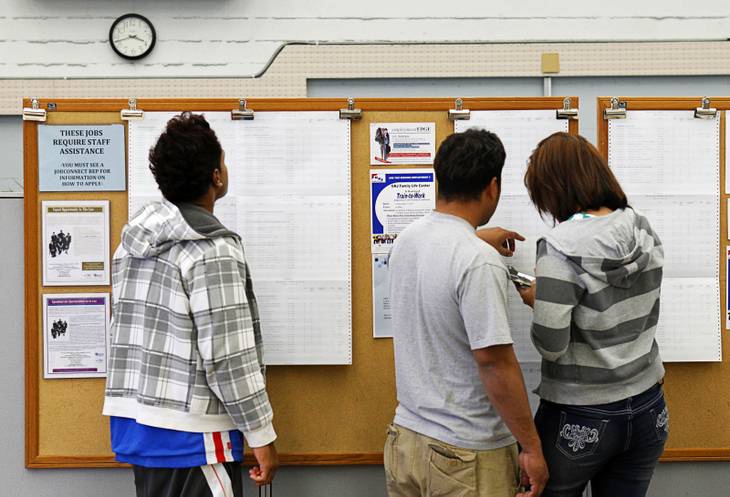Metropolitan areas in the Intermountain West have recovered from the housing bust, but the unemployment rate is still a major concern for Las Vegas, an economic report issued today by Brookings Mountain West says.
The third-quarter Mountain Monitor, published by Brookings, said house prices increased in all 10 western metropolitan areas it monitors between June and September for the first time since the Great Recession began.
The report gauges economic performance by ranking housing, the employment rate and economic output.
Overall, Las Vegas joined Colorado Springs, Colo., within the second-weakest tier of the nation's 100 metropolitan areas. Albuquerque is in the weakest tier. The top performers in the West were Boise; Salt Lake City; Provo, Utah; and Phoenix. The second tier in the West includes Ogden, Utah; and Denver. Tucson, Ariz., is in the middle tier.
The report was written by Brookings' Mark Muro and Kenan Fikri and used data compiled by Moody's Analytics, the U.S. Bureau of Labor Statistics and the Federal Housing Finance Agency House Price Index.
"Today's most recent economic reports point to a national economic recovery that is moving in the right direction, albeit slowly," the report says. "The unemployment rate is edging down, the housing market is showing signs of life and national (gross domestic product) growth is relatively strong.
"But the subnational picture is only beginning to come into focus. Metropolitan level data now available for the third quarter of 2012 reveal that the rate of recovery varied tremendously across the nation's metropolitan areas. Nowhere is that variation more apparent than across the landscape of the Intermountain West."
Employment in the West grew by 0.3 percent during the quarter, slightly better than the 0.2 percent national average increase. While most of the metropolitan areas of the West had the greatest improvement in employment rates, Las Vegas, Albuquerque and Colorado Springs saw their employment rates languish with Las Vegas and Colorado Springs below the national average.
The report also measured gross metropolitan product output with Las Vegas, Salt Lake City and Ogden improving by 0.7 percent over the quarter.
"By the close of the third quarter, the economy of the metropolitan Mountain West remained only 0.3 percent smaller than it was before the recession," the report says. "The steadily lightening drag of shrunken but growing-again economies in Las Vegas, Phoenix and Tucson still more than outweighed the steady advances above and beyond former peaks in the rest of the region's major metros."
